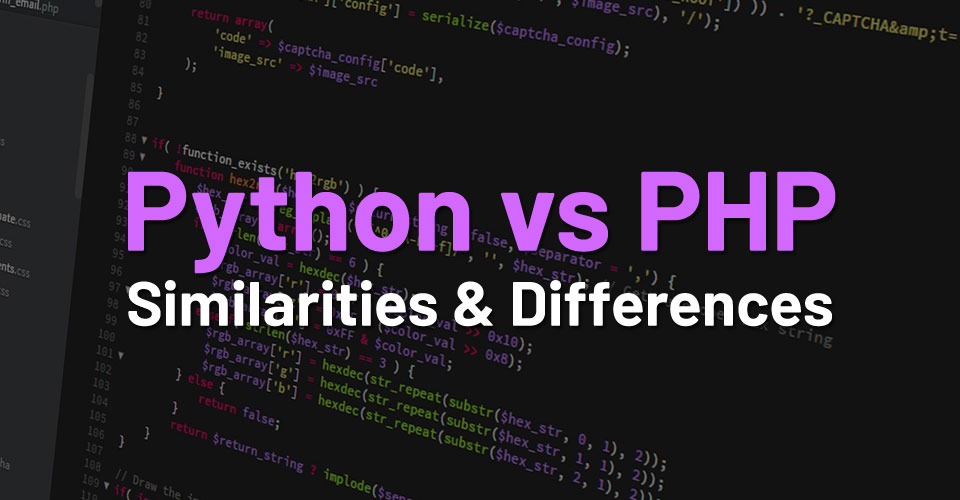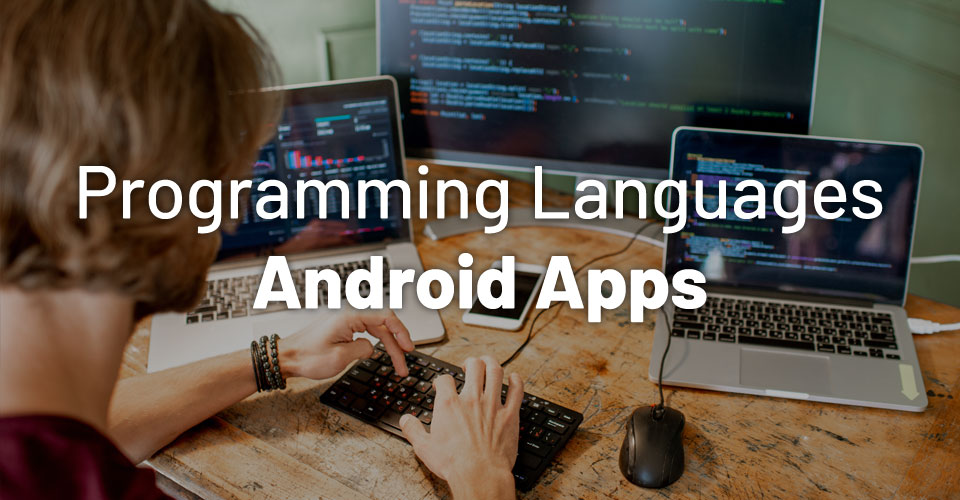If you’re a new programmer these days or you’re looking to become one, maybe you’re thinking what language would be the best to go with. In this article we’ll take a look at 2 of the most popular choices when it comes down to programming languages: Java and Python.

Right from the start, you should know that both Python and Java have many differences and similarities between them. If you are interested, please check out my other article: Python vs PHP.
In the following paragraphs we’ll cover some of them to give you a better idea on which language can go best with your specific needs. But before we jump into the mix, let’s first see what are both Python and Java mainly used for in the programming world.
Let’s start with Python. This language was created in the late 1980s. So, yes, it has history behind it. The name was given after Monty Python (you don’t really need to know this, but it’s a nice fact).
So, what is Python used for nowadays? For pretty much everything. If you need a multi-purpose language that is versatile and efficient at what it does, Python could be your thing.
Python is used by thousands of developers to do various things, like creating web applications, desktop applications, test different hardware like microchips, power Instagram and you can even use it to design video games using a certain library created for this purpose.
The idea is, that Python can be used for pretty much any programming task. This is one of the reasons, why it is so liked among developers worldwide.
But what about Java? Oracle, the one that powers the language says that Java is used by more than 3 billion devices around the globe. That’s a huge number. So where exactly is Java used? One of the main applications for Java is the Android space.
Yes, most of the apps that run on your device (if it’s Android) are written using Java. Other than this area, Java is used to design financial apps and server applications needed for specific industries. If we talk about web applications, Java is present there as well. You can create such apps using it, and even traditional software.
For example, some of the apps using Java are: Minecraft, NetBeans IDE, Eclipse IDE and others.
Let’s mention here that both languages are open-source. This means that the source code is open for any user to make changes and customize to his/her needs. Both Java and Python being open-source, mean that there’s a huge community behind them. This can be a real asset, if you use it the right way.
It doesn’t matter if you’re already using one of the languages, there will surely be times when something doesn’t work the way you want. When such things happen, just go and look around in the community forums, there’s quite a big chance that somebody else has already solved that issue, and you can use the answer as well.
We can surely tell that both languages are widely used among programmers. But the real question that arises is: Which one should you choose, since both of them are so widely used? Next, we’ll talk about this matter. We’ll cover the advantages for using both Java and Python, so in the end you can decide which languages does best with you needs.
Let’s start with Java:
Java
The first thing you should consider when starting to learn a new language is if that certain language will be used in years to come. Basically, if it has future ahead of it. If you choose a language that will be gone in a year or 2, you could waste valuable time learning something that won’t even be used at a certain point.
Luckily, that’s not the case with Java. The language was around for quite some time now (released in 1996) and it doesn’t look to be going away any time soon. So, if you want to learn a language that is future-proof, Java is a good candidate.
What are the advantages, if you choose to learn Java? Let’s list some of the right below:
- The need for Java developers. Let’s just name one of the industries that heavily relies on Java: The Android platform. Android is easily dominating the market, no matter if we talk about smartphones, tablets or smart TVs. Since so many people use Android in their daily lives, the need for Java developers won’t go down at all. On the contrary, the need for Java developers is on the rise since smart devices came into our lives. If you choose to learn Java, maybe to develop apps for Android, you won’t go wrong with that decision.
- Java is object-oriented. What does this mean? Basically, this type of programming allows you to create modular programs from which you can take parts of the code and reuse it somewhere else. This is an important bonus, because it can make the working process simpler and more efficient for any Java user.
- Java is secure and up to date. Do you want to work with a language that doesn’t really care about security? Of course not, who wants that? Java is a language that deeply considers security as one of its main features. The entire Java programming environment was developed with security in mind. I also mentioned here that the language us up to date. It is true. Java developers regularly release new features that make the language even more tied to modern standards.
- Java is a language that does not depend on the platform. This means that no matter what computer system you use, you can easily move Java to another system if you want to, and run the application there as well. For more complex software this is a very important step when testing it.
- What does this mean? Simply put, Java can run many tasks simultaneously within single program. There are many other languages that don’t come with this ability.
Above I listed some of the pros if you choose to work using Java. But are there any major flaws with this language? No, not really that many. I will point one out though that many first-time users seem to notice.
If you want to learn something new, in this case a programming language, it’s better if it’s easy to grasp, right? Well, Java isn’t known as the simplest to learn programming language. It takes quite a bit of time until you get used to it.
This is because of the many features that are needed to make the most out of using this tool. But once you get the language and use it more and more often, you can become very productive using it.
Now, let’s move on and talk about Python.
Python
Why should you use this one?
- When I talked about Java, I mentioned that you need a language that will stand up in time. Just like Java, Python is also a great candidate in that sense. More and more people are using Python for their projects and it quickly becomes one of the most popular languages for writing code. The community behind this language is rising by the day. If we look at the facts, it seems that Python will be a big player in the future of programming.
- The second advantage of using Python, where Java isn’t very good, Python excels. This is the user friendliness. When you start learning it, you’ll notice that it is very similar to the English language itself. That is because it uses many words in the same sense, and the code doesn’t need to be filled with curly braces all over it. Besides this, Python also has a set of rules. PEP 8 is what it’s called. For instance, this tool, will let you know when you have to start a new line of code. But something that makes this so cool, is the fact that every Python script will look very similar no matter who wrote it. PEP 8 will help even newcomers write clean code that looks like it was written by a professional programmer.
- I said that both the languages are used to do a lot of things. But out of the 2, Python is more versatile than Java. Python is a dynamic system that relies on fluidity and experimentation in code, which in turn results in a more adaptable coding style than Java (which is more rigid).
- Many support libraries. Because of the fact that Python is a fairly old language, a lot of code has been stacked up along the years. You can easily find deposits of such source codes if you make an online search. Since this is the case, many libraries were created that can help developers get their projects done way easier than reinventing all from scratch.
But what are the disadvantages with using Python? I’ll give you 2 right now: One of them is the possibility of slow processing. Python uses an interpreter instead of a compiler, which sometimes can result in slow speeds.
The other negative is that all the errors will be shown when the application was run and tested. Other languages, like Java, won’t let you run the app until you fix all the errors in the code. But since Python is a dynamical language, you’ll get the results only after the code was tested.
Conclusion
In conclusion, both languages have their strong and less strong areas. We can’t say that one is better than the other in general. You have to be the one choosing that considering what you want to accomplish. This is easily done if you think about what your application has to offer to its users. This way, you will surely make the right decision.





